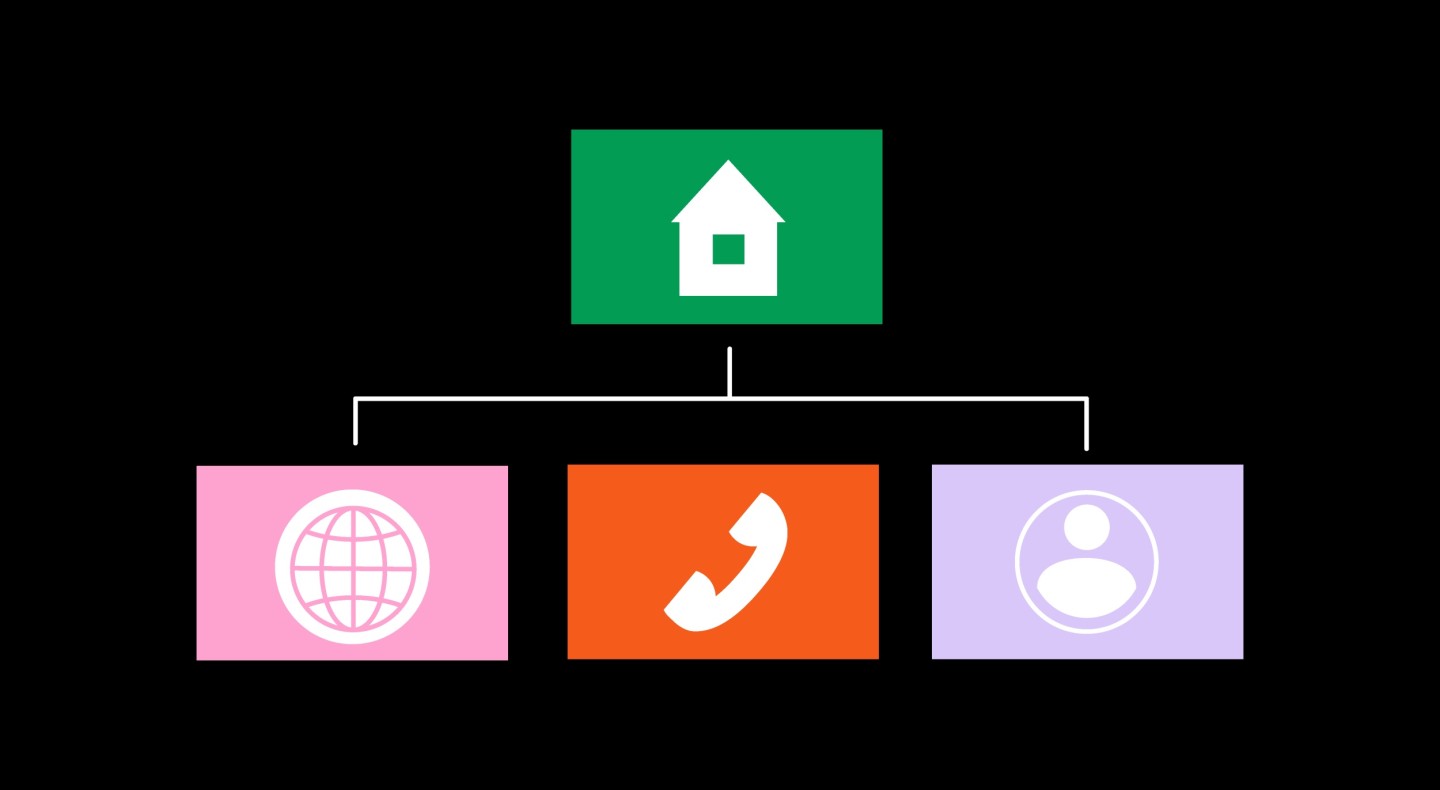
Boosting rankings to drive real business results
By ranking high on a search engine results page, your site will be more visible against competitors, driving more traffic to your website. If the content is high quality and your website has a positive user experience, conversions such as leads, sales, and awareness are more likely to occur due to SEO success.

What is SEO?
SEO stands for search engine optimisation. It is the process of improving a website for it to rank high on search engines, specifically targeting organic search. SEO is a way to efficiently connect with customers throughout their customer journey. Search engines work by crawling through millions of websites and evaluating which sites are most relevant, authoritative, and trustworthy, so it knows where to rank them on the search engine results page when users search for specific keywords.
Why should I focus on SEO?
SEO is not an instant solution, but more of a gradual development of credibility, connection, and authority.
The key benefit to search engine marketing is remaining competitive. By ranking on the first page of a search engine above competitors, users are likely to click on your site and engage with your content. This can provide an opportunity to reach new customers, as well as maintain connections and trust with pre-existing customers.
By understanding at user intent and behaviour, SEO efforts can be directed towards valuable keywords to match their wants and needs. Although it is not easy to measure with regards to return-on-investment, businesses are still able to access a plethora of data surrounding behaviour on the site, measuring paid search and organic search activities.
Need help with your SEO strategy?
Get in touch

A marketing perspective
Marketing services, including copywriting, are designed to engage your audience and appeal to search engines, boosting your website’s visibility, improving search rankings, and attracting more organic traffic.
Website content
By modernising your content and making it relevant to your users’ needs and wants, you can build trust with both users and the search algorithms, leading to sales and high search rankings.
Businesses should prioritise their website and key pages to appear on the first page of a search engine, especially with the recent emergence of ai-summaries and zero-click answers dominating the top of search pages. These features often reduce the amount of clicks for websites, making it even more critical to enhance your website content. To maintain visibility and user engagement, your content must offer clear value and have high authority built through trust.
Keyword research
Having a relevant content strategy can help build connections, react to trends, and increase visibility on the search engine. Keyword research is an SEO technique which can direct which words are used on a website based on user behaviour, needs and wants.
Considering the language and search queries a user may have can direct keyword research. By using tools such as Google Keyword Planner or Surfer SEO, you can find a balance between search volume, competitiveness of the keyword and the relevance of it. This is the backbone of a content strategy to improve online visibility, and is essential for an effective SEO strategy.
Long-tail keywords are longer and more specific. Although they have a lower search volume, they often have a high conversion, and help reach and connect with niche, relevant audiences. A combination of different types of relevant keywords can lead to increased search ranking and better audience connection.
A knowledgeable SEO copywriter knows the best phrases to use, and can create content based on research surrounding your target audience, whilst still maintaining a brand voice and providing value to your target audience and business.
Want to learn more about our marketing services?
Read more here

Marketing efforts
In a competitive digital environment, it is essential that businesses take the opportunity to direct users to their site whenever possible. Facebook, Instagram and other marketing channels can increase visibility and reach for a website, and provide an opportunity to reengage with website visitors through paid search.
Paid search campaigns on Google can target users who have come to the website as organic search traffic before. This might be covered in a digital marketing strategy as a way to nurture leads and result in sales.
With paid ads, it is still important to consider the content relevance, on-page user experience and overall the business’ SEO. Since paid ads search runs on a bidding system, if the landing page is not optimised, a competitor will likely be shown to users more. Paid search and organic search work best when paired together - not competing against each other or isolated.
Local SEO strategy
Local search engine optimisation can lead to engagement, traffic, and conversions by focusing on specific locations. With customers wanting information quick, easy, and on the go, local SEO is becoming increasingly important, especially as more people use their mobiles to find local businesses in particular locations across search engines. This can be done by using specific keywords for particular regions, cities, towns or postcodes.
Customers can also find local listings on Google Business Page, so utilising this platform as part of a digital marketing strategy is key. Local SEO can be further strengthened by aligning messages across social media platforms, which are increasingly being used as search engines in their own right.
The marketing efforts of a business can impact the SEO performance of a web page, as it can direct users to specific pages. By using hashtags, location tags and relevant keywords on social media posts, off-page SEO can be utilised across marketing channels, ultimately supporting cross platform searching and increasing local engagement.
Looking for a partner to guide your next project?
Get in touch

A developer perspective
When developing a website, it is important to consider user experience, page speed and technical search engine optimisation.
Technical SEO strategy
Aside from the content on the page, other SEO efforts include technical optimisation, which focuses on making the website accessible for users, as well as discoverable for crawlers, which impacts the organic rankings. Small adjustments to things such as URL structure can help with rankings, or larger tasks such as implementing structured data through coding might be required.
Focus areas might include making the website mobile friendly. With the growing trend of users accessing content via mobile devices, it’s important to optimise the website to be easy to navigate and quick to load. This is a crucial aspect of technical SEO.
Other important forms of technical optimisation include improving the website speed and user experience by optimising images, caching and minimising unnecessary code. A slow site speed often discourages users to stay on the site, negatively impacting conversions, competitiveness and connection.
Creating and submitting a sitemap to search engines like Google Search Console helps ensure efficient site navigation, improved Google indexing, and enhanced visibility in search results. By helping search engines understand your site, you can ensure it is crawled, ranked highly and able to reach your audience.
Want to learn more about our website development services?
Learn more here

A design perspective
Website design should encourage users to travel through the website with ease, whilst making you stand out from the crowd.
A positive user experience
Having a well designed, aesthetic website is critical in the users’ receptiveness to the content, representing the quality of the business and the brand. The site architecture is pivotal in the success of the website and its competitiveness, offering users information in fewer clicks.
Natural flowing content and organically placed links help further build trust with the user, solidifying the brand to be credible and authoritative.
Google shared their E-E-A-T guidelines, which stands for Expertise, Experience, Authoritativeness and Trustworthiness. The design of the website should match this criteria, and this is done so by making information clear, high quality, and useful. Optimising on-page elements ensures the content matches this criteria, and reduces the likelihood of visitors leaving to find more relevant information on other websites.
Having a positive user experience ensures the messaging is heard and the offerings of the business sell.
Want to know more about our website design services?
Learn more here

Why is an SEO strategy important?
Reacting to trends
SEO is constantly changing, evolving and developing, with Google making thousands of changes a year. It is important not to fall behind and make sure your business' content is up to date. Investing in an SEO strategy gives businesses a competitive advantage over those who neglect it, and without constant re-evaluation and adjustments, costly changes will be required.
An SEO manager or SEO professional can help with strategising a plan, researching keywords, creating content, and monitoring user behaviour, ultimately increasing website traffic. A content marketing expert is able to consider what people search, as well as what search engines like Google are looking for. By reacting to trends in user behaviour, as well as the ever-changing best practices, businesses can remain competitive, further responding to the Google E-E-A-T guidelines to stay on the first page of organic search results.
Whether it is an in-house SEO team or through an external company, investing in optimisation over a long term strategy can have high rewards for businesses. SEO is always going to be part of your online presence, so considering your SEO efforts is vital!
Competing with AI
With so many free AI resources readily available to everyone, credibility is now harder and more critical across web and search engines. The emergence of AI has led to even more trend changes, with bots and AI-led technology stealing content from websites and regenerating it. This duplicated, poor-quality content is clogging up the internet completely, making it challenging for authentic content to shine through to users.
This means on page SEO, local SEO, technical SEO and digital marketing techniques are more important than ever. Businesses now need to focus on creating content which is unique, up to date and high quality to match users' search intent to increase website traffic and maintain a page high ranking ahead of AI-generated content.
Ready to enhance your website?
Get in touch

SEO at JUMP
At JUMP, we recognise the importance of SEO: it brings together all our hard work and ensures it’s seen by those who are looking for it.
Our content marketers ensure our clients' website copy is optimised so their pages can appear on the top of search engines, maximising awareness, engagement and competitiveness. Our digital marketing team also consider ways to enhance technical SEO for clients, such as link building, adding image alt text, and keeping content current and refreshed.
Our designers ensure the website user experience is positive, accessible and engaging for all internet users. We achieve this through storytelling animations, and clear, purposeful graphics to guide and support the customer journey. Every element is thoughtfully designed to be visually engaging, responsive across devices and connected to the brand identity. This creates an experience which is concise, engaging and has an easy to understand message.
The developers at JUMP work on the Technical SEO strategy, from the first step of developing a website. They ensure the website is accessible, mobile friendly, and coded efficiently in order to make the site crawlable and high ranking. When developing the backend of the website, the developers ensure the site is clear and readable, ensuring designers and digital marketers at JUMP can edit and enhance the website easily for the client.
As an agency, we partner with SEO specialists, who help with providing updated advice, and constantly check our clients' SEO, as well as our own. Utilising their SEO knowledge ensures our websites are fully optimised, staying ahead of trend changes, and consistently rank well, helping our clients reach the right audience and drive results.